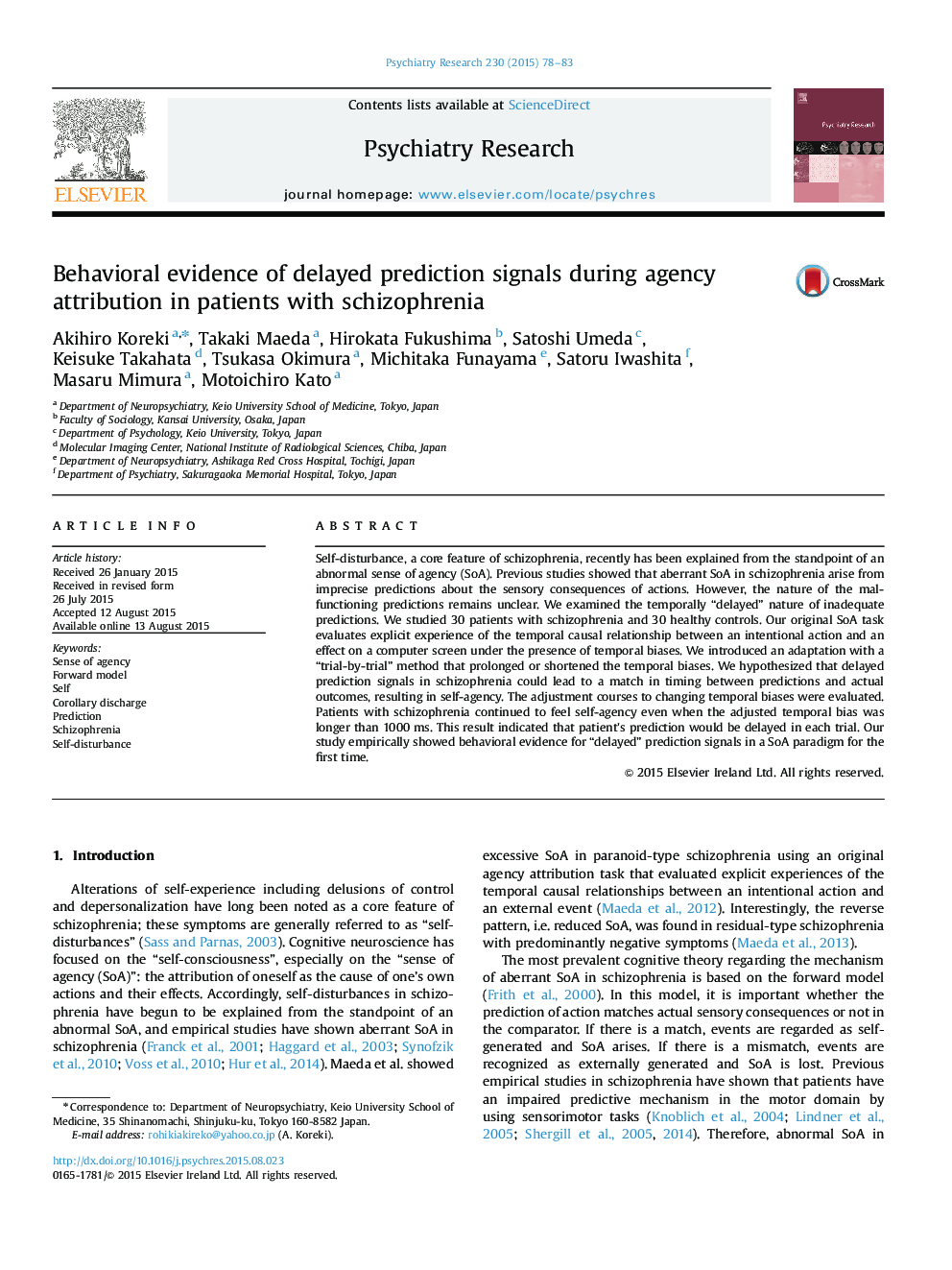| Article ID | Journal | Published Year | Pages | File Type |
|---|---|---|---|---|
| 10304062 | Psychiatry Research | 2015 | 6 Pages |
Abstract
Self-disturbance, a core feature of schizophrenia, recently has been explained from the standpoint of an abnormal sense of agency (SoA). Previous studies showed that aberrant SoA in schizophrenia arise from imprecise predictions about the sensory consequences of actions. However, the nature of the malfunctioning predictions remains unclear. We examined the temporally “delayed” nature of inadequate predictions. We studied 30 patients with schizophrenia and 30 healthy controls. Our original SoA task evaluates explicit experience of the temporal causal relationship between an intentional action and an effect on a computer screen under the presence of temporal biases. We introduced an adaptation with a “trial-by-trial” method that prolonged or shortened the temporal biases. We hypothesized that delayed prediction signals in schizophrenia could lead to a match in timing between predictions and actual outcomes, resulting in self-agency. The adjustment courses to changing temporal biases were evaluated. Patients with schizophrenia continued to feel self-agency even when the adjusted temporal bias was longer than 1000Â ms. This result indicated that patient's prediction would be delayed in each trial. Our study empirically showed behavioral evidence for “delayed” prediction signals in a SoA paradigm for the first time.
Related Topics
Life Sciences
Neuroscience
Biological Psychiatry
Authors
Akihiro Koreki, Takaki Maeda, Hirokata Fukushima, Satoshi Umeda, Keisuke Takahata, Tsukasa Okimura, Michitaka Funayama, Satoru Iwashita, Masaru Mimura, Motoichiro Kato,
